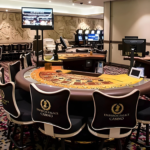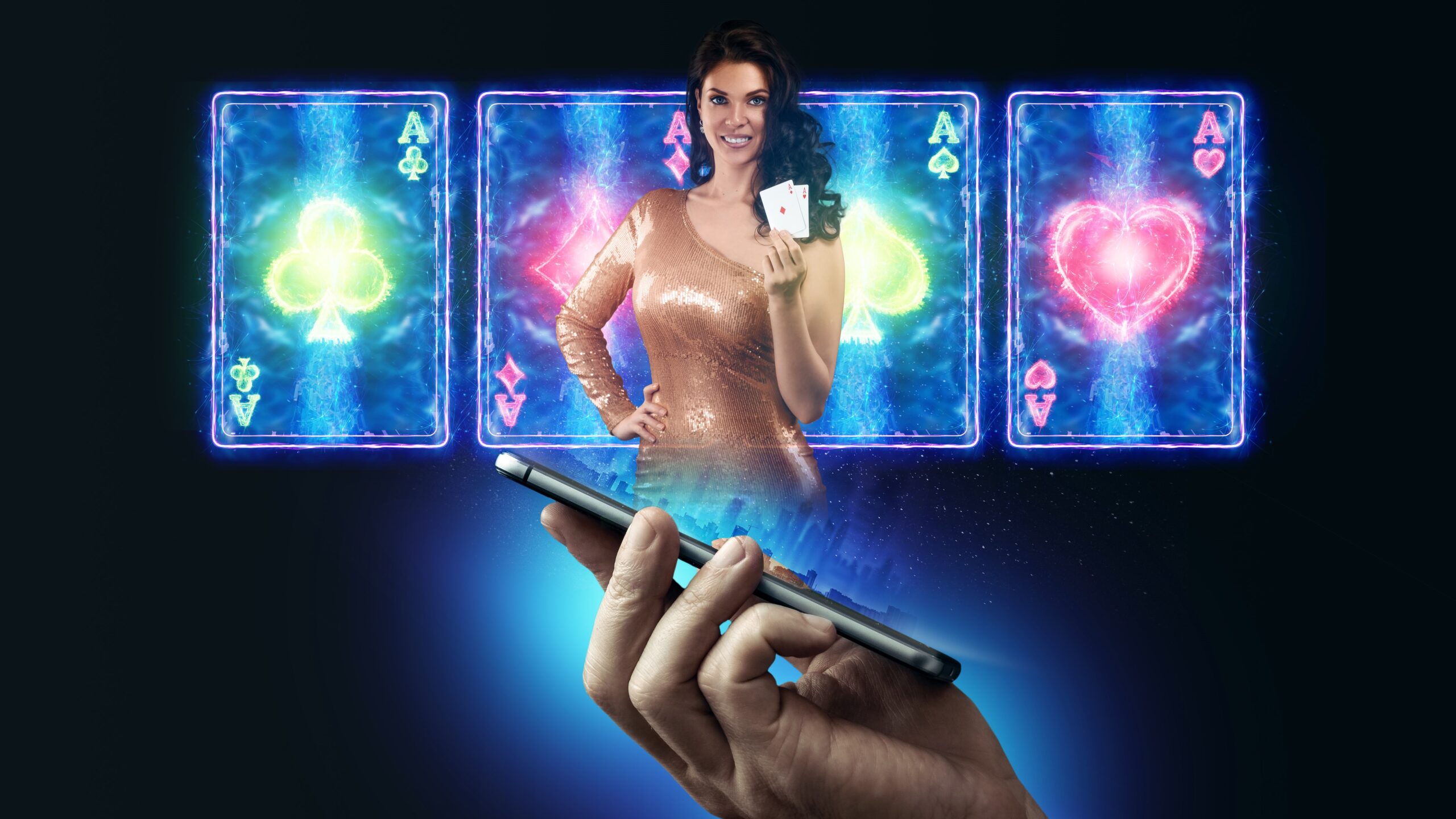Over the past decade, technology has dramatically reshaped various industries, and the casino world is no exception. South Africa, known for its vibrant and diverse casino landscape, is now witnessing an exciting shift as Augmented Reality (AR) makes its way into the gaming scene. This breakthrough technology is blending the digital world with the real one, creating immersive experiences that were once unimaginable.
What is Augmented Reality (AR)?
Augmented Reality (AR) is a technology that enhances the real world by overlaying digital elements such as images, sounds, or videos onto our surroundings. Unlike Virtual Reality (VR), which immerses users in completely digital environments, AR adds interactive digital components to the real world, enhancing the user’s experience without replacing it. This means that while using AR, individuals still interact with the physical environment, but with additional layers of information or virtual content superimposed over what they see.
In practical terms, AR can be experienced through devices like smartphones, tablets, or AR glasses. For example, when looking through an AR-enabled device, users may see digital information such as graphics, text, or animations integrated into the live view of their surroundings. The key here is that AR creates a seamless blend between reality and virtual elements, making them feel as if they coexist in the same space.
In a casino setting, this technology can revolutionize how players interact with games. Imagine sitting at a poker table and seeing virtual poker chips floating above the surface, or playing a slot machine where animated characters and bonus rounds appear in real-time, adding an extra layer of excitement. These digital features aren’t just for show—they can actively influence gameplay, offering new ways for players to engage with games and other casino experiences.
What makes AR particularly fascinating is its ability to blur the boundaries between the physical and digital worlds. It allows casinos to create environments that feel more dynamic and interactive, with the potential to immerse players in experiences that were previously impossible. This seamless integration of virtual elements into the real world not only enhances entertainment but also opens up countless possibilities for how casinos might evolve in the future.
The Role of AR in Enhancing Casino Games
| AR Feature | Slot Machines | Personalized Experiences | Interactive Table Games | Virtual Dealers & Avatars | Attracting a Younger Audience |
| Technology Used | 3D virtual elements, animations, mini-games triggered by player actions | Customizable themes and designs that adapt to player preferences | AR glasses, smartphone apps, holograms, digital card displays | 3D holograms for dealers and avatars to represent other players | AR-powered experiences tailored to tech-savvy players, creating an immersive environment |
| Player Interaction | Players interact with 3D characters or objects, adding excitement to spins and game features | Each gaming session feels unique, encouraging players to return | Players can digitally see their hands, receive card recommendations, or play virtually | Dealers are represented as 3D holograms or avatars, allowing for remote play | Younger players familiar with AR and digital interfaces find these experiences engaging |
| Enhanced Gaming Experience | Digital features enhance the excitement and immersion, making each spin feel dynamic | Personalization through themes and designs tailored to individual player preferences | Real-time interaction with other players through avatars, enhancing social connection | Players can engage with a digital dealer or avatar instead of a live person | The immersive nature of AR engages a younger, tech-oriented audience |
| Visual Appeal | Stunning animations and digital characters bring life to the machine, making each play more vivid | The AR-based themes adjust dynamically, creating a fresh and exciting visual experience every time | AR enhances the appearance of table games, making them feel more engaging and interactive | Virtual dealers and avatars create a futuristic and interactive gaming environment | AR’s interactive nature appeals to those looking for a more futuristic gaming experience |
| Impact on Player Retention | AR-driven slot games encourage repeat visits by making games more exciting and visually compelling | Players are more likely to return due to the personalized and evolving nature of the gaming experience | AR-based table games offer unique ways to play, increasing player interest and engagement | Virtual dealers could offer a continuous, 24/7 gaming experience, boosting accessibility | As AR evolves, casinos will draw in new generations, ensuring they stay ahead in the gaming world |
Creating Immersive Casino Environments
- Transforming the Casino Floor:
- AR enables interactive promotions and virtual guides to help players navigate the casino.
- Players can be directed to their favorite games through AR-enabled devices.
- Digital billboards can be replaced with AR projections that react to player movements, creating a dynamic atmosphere.
- The floor layout can be redesigned with AR elements to enhance the casino experience.
- Thematic Environments:
- AR can create fantasy worlds or specific storylines within the casino.
- Each corner or section of the casino can match a unique theme, immersing players further into the experience.
- These thematic environments deepen the connection between players and the casino’s branding.
- Personalized Gaming Experience:
- Virtual assistants can greet players and recommend games based on their preferences.
- The environment can adjust to suit individual preferences such as lighting, sound, and game difficulty.
- This level of personalization makes players feel valued and enhances their overall experience.
- Customization of music, themes, or even the visual layout of games can further elevate the gaming environment.
Benefits of Augmented Reality for South African Casinos
AR technology brings multiple benefits to South African casinos, starting with its potential to attract a younger, tech-savvy audience. As younger generations, such as millennials and Gen Z, grow up surrounded by digital and interactive technology, they expect gaming experiences that match their familiar environments. Traditional casinos may not always resonate with these younger players, who seek more dynamic, engaging, and tech-driven experiences. By incorporating AR into their offerings, casinos can capture the attention of this demographic, providing them with an environment that feels fresh, exciting, and aligned with their digital lifestyle.
Another significant benefit of AR is its ability to enhance customer engagement. Unlike traditional casinos, where players interact mostly with physical machines or dealers, AR allows players to engage with the environment in a much more immersive and interactive way. With AR, casinos can create dynamic, virtual elements like augmented reality games, leaderboards, or digital rewards that make each gaming session more exciting. This not only increases the level of excitement for players but also encourages them to stay longer and interact more with the games, ultimately boosting both customer satisfaction and engagement. The added interactivity also gives players a sense of ownership and involvement, leading to more memorable experiences.
In addition to enhancing player engagement, AR opens up new avenues for revenue generation. Casinos can integrate AR-based features that offer in-app purchases, allowing players to buy digital items such as power-ups, special effects, or exclusive bonuses. These purchases can enhance the gaming experience by adding new layers of excitement or offering players a competitive edge. By offering such digital products, casinos can tap into a new revenue stream while simultaneously providing players with additional ways to customize their experience. This can lead to increased spending and a more diversified income model for casinos, as they expand beyond traditional gambling to include virtual goods and services.
Furthermore, AR has the potential to create more personalized experiences for players. For example, players could be greeted by a virtual assistant that offers personalized game recommendations based on their preferences, or even adjust the casino environment to suit their needs, such as controlling lighting or background music. These small touches of personalization can make players feel more valued and comfortable, leading to greater loyalty and repeat visits. By integrating AR to cater to individual preferences, South African casinos can create a more welcoming and tailored experience, ensuring that players return for future gaming sessions.
Challenges and Considerations for South African Casinos
| Challenge | Description | Impact on Casinos | Potential Solutions | Example |
| High Initial Costs | Implementing AR technology requires significant investment in hardware, software, and staff training. Small casinos may struggle with these costs. | Financial burden on smaller establishments. A major investment is required to stay competitive in the market. | Seek partnerships with technology providers or apply for grants. Consider phased implementation to spread costs. | A smaller casino in South Africa might start with AR-enabled mobile apps for slot machines, rather than implementing full-scale AR systems. |
| Technological Limitations | The need for high-quality graphics and seamless interactions can place a strain on existing hardware, limiting the effectiveness of AR technology. | Potential technical issues that may affect the user experience and require constant upgrades. | Regular updates and upgrades to hardware and software; invest in more robust systems as AR technology improves. | For instance, a casino might need to upgrade its network infrastructure to support AR games with smoother performance. |
| Regulatory Concerns | Introducing AR may raise concerns regarding fairness, security, and transparency, especially with AR-based mini-games. | Potential legal challenges in ensuring that AR-based games comply with strict gambling laws and regulations. | Work closely with regulatory bodies to ensure compliance; develop transparent rules for AR-based games. | An AR-powered poker game could be scrutinized to ensure that virtual elements do not interfere with the fairness of the game and the integrity of casino regulations. |
| Player Accessibility | Not all players may have access to AR-compatible devices such as AR glasses or high-end smartphones, limiting the accessibility of AR features. | Excludes a portion of the audience who cannot afford or do not have access to the necessary AR technology. | Offer alternative gaming experiences for those without AR devices; consider providing rentals or AR glasses at the casino. | A casino could offer AR glasses for rent to customers who do not own compatible devices, allowing them to experience AR features while playing. |
| Integration with Existing Systems | Integrating AR into the current casino setup without disrupting existing systems or workflows could prove complex. | Potential disruptions to operations and the learning curve for staff members who are not familiar with AR technology. | Start small with pilot programs and ensure adequate staff training; integrate AR gradually into existing infrastructure. | A casino may initially introduce AR in one section, such as slot machines, to avoid overwhelming staff and systems with a full-scale rollout. |
How South African Casinos Can Leverage AR for Marketing
- AR-Powered Promotions
Casinos in South Africa can use AR to create innovative and engaging promotional campaigns. For example, AR-based treasure hunts within the casino can encourage players to search for virtual objects or symbols hidden around the venue. These items could reward players with prizes such as free spins, bonus credits, or access to special games. These types of interactive promotions can generate excitement and create a buzz, making players more likely to visit regularly and participate in more activities during their visit. - Virtual Casino Tours
By incorporating AR, South African casinos can offer virtual tours of their casino floors. Players could use their smartphones or AR glasses to explore the layout and atmosphere of the casino before stepping foot inside. This virtual experience would help potential customers understand what to expect and plan their visit, whether it’s to check out a specific game or to enjoy the environment. For existing patrons, it offers a convenient way to explore new features, discover promotional areas, or learn about upcoming events, making the casino experience more personalized and engaging. - Personalized Offers Through AR
Another way AR can be used in marketing is by providing personalized offers to players based on their interactions within the casino. For instance, AR can track player movements and preferences, presenting special discounts or loyalty rewards through virtual notifications. This not only makes the experience more customized but also increases the likelihood of customer retention. Players will feel more valued when they receive targeted promotions that suit their specific tastes and playing habits. - Interactive Event Marketing
AR can also be used to promote events or special offers in real-time. For example, if the casino is hosting a themed event or offering limited-time promotions, AR projections can display interactive event information on walls, tables, or gaming machines. Players can interact with these digital ads through their smartphones or AR glasses to get more details about the event, see live updates, or receive exclusive event-related bonuses. - AR-Based Social Media Campaigns
South African casinos can use AR to create shareable experiences that players can post on social media. By designing AR filters, games, or challenges that players can interact with, casinos can encourage users to share their experiences online. This creates free marketing through word-of-mouth and online content, increasing brand visibility and attracting a larger audience. These kinds of campaigns can also drive traffic to the casino’s social media profiles, where further promotions and information can be shared.






